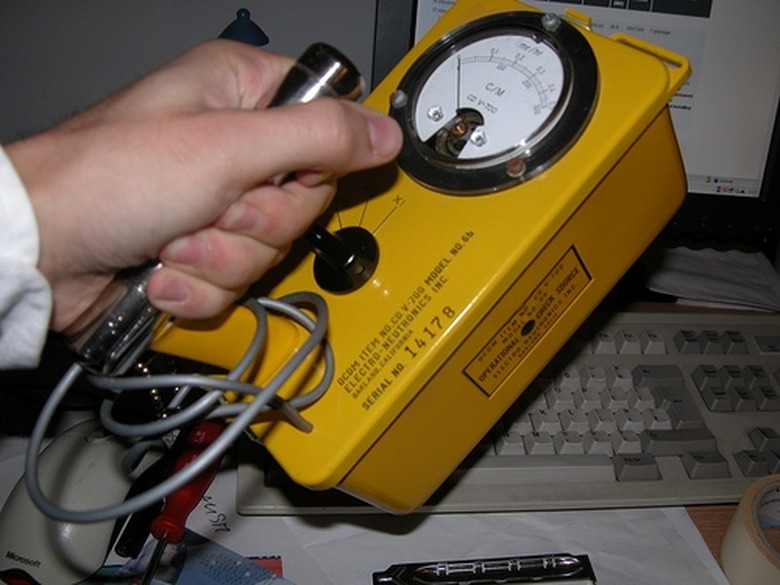Uses For Hydrogen-3
Hydrogen-3, or tritium, is a rare, radioactive isotope of hydrogen. It is made up of a nucleus of one proton and two neutrons. The mild radiation emitted by tritium makes the substance useful in commercial, military, and scientific endeavors. Also, it is relatively safe, as the radiation it emits cannot penetrate human skin.
Nuclear Reactions
Nuclear Reactions
Tritium is used to fuel nuclear fusion reactions. When tritium is fused to deuterium, another isotope of hydrogen, massive amounts of atomic energy are released. One application of this type of reaction is in controlled fusion reactors, which may someday be used to produce electricity. Fusion reactions can also be used in the creation of nuclear weapons.
Self-Powered Lighting
Self-Powered Lighting
Tritium can be used to create self-sufficient light sources. Chemicals called phosphors give off light when they come into contact with the electrons, also known as beta particles, that radiate from tritium. These lights are not bright, but they are useful for illuminated signs as well as firearms sights for nighttime use.
Research Science
Research Science
Tritium's radioactivity also makes it useful to research scientists since it can be used to analyze chemical reactions as a radioactive tracer. By replacing stable hydrogen atoms in a molecule with an atom of tritium, researchers can understand the results of the reaction by tracking the radiation given off by the tritium. Radioactive tracers must be isotopes of the atom they are replacing; this means they must have the same number of protons. Because hydrogen is a very common atom, tritium can be used in a wide variety of test reactions.
References
Cite This Article
MLA
Rogers, Owen. "Uses For Hydrogen-3" sciencing.com, https://www.sciencing.com/uses-hydrogen3-7297714/. 24 April 2017.
APA
Rogers, Owen. (2017, April 24). Uses For Hydrogen-3. sciencing.com. Retrieved from https://www.sciencing.com/uses-hydrogen3-7297714/
Chicago
Rogers, Owen. Uses For Hydrogen-3 last modified March 24, 2022. https://www.sciencing.com/uses-hydrogen3-7297714/
